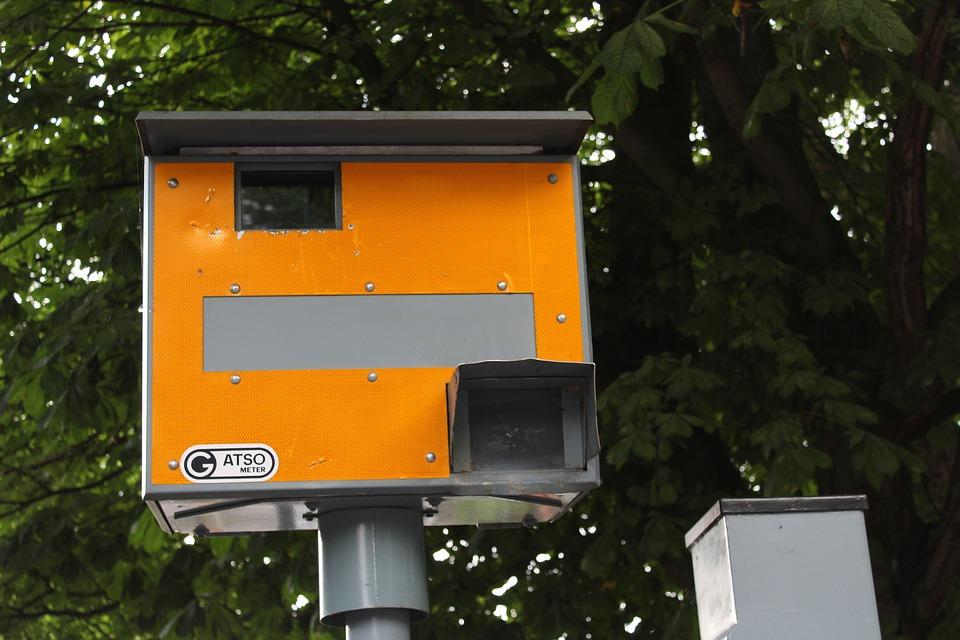In the pursuit of enhancing road safety and minimising the occurrence of accidents caused by speeding, the United Kingdom has implemented stringent speed camera laws. These laws are critical for enforcing speed limits and discouraging drivers from surpassing them. Speed cameras have become integral to the UK’s road infrastructure since their installation in the early 1990s and are deployed across the country.
The Legality of Speed Cameras
Speed cameras in the United Kingdom enforce speed limits and ensure road safety. To ensure their lawful use, the deployment and operation of speed cameras are governed by specific laws and regulations.
The legality of speed cameras in the UK is based on key legislative provisions. The Road Traffic Regulation Act 1984 is the primary law that deals with speed limits and enforcement measures for speeding offences. Section 89 of this Act states that exceeding the speed limit is considered an offence.
To support the use of speed camera evidence in legal proceedings for speeding offences, the Road Traffic Act 1991 introduced amendments. Sections 23 and 40 of this Act added a new section, section 20, to the Road Traffic Offenders Act 1988. This allows evidence obtained from speed cameras to be lawfully used in prosecuting speeding. Therefore, speed camera evidence holds legal weight and can be relied upon in court.
The Road Traffic Act 1991 amended the Highways Act 1980 by introducing section 95A. This section grants highway authorities the legal authority to install and maintain speed cameras on or near the roads. It enables these authorities to use speed cameras effectively in enforcing speed limits and ensuring road safety.
Guidelines for Using Speed Cameras in the UK
The use of speed cameras in the United Kingdom is guided by specific regulations to ensure their effective and lawful deployment.
Placement and Visibility
Speed cameras are strategically positioned in areas where speeding is a concern, such as accident-prone zones or locations with high pedestrian activity. They are often housed within distinctively coloured yellow casings, which enhance their visibility and draw attention to their presence on the road.
Signage Requirements
Clear and visible signs are essential to inform drivers about the operation of speed cameras. Following the guidelines outlined in the Traffic Signs Manual, appropriate signage should be used to indicate the presence of speed cameras.
Data Protection
As speed cameras involve collecting and processing personal data, it is crucial to adhere to data protection laws. Compliance with the General Data Protection Regulation (GDPR) and the Data Protection Act 2018 is necessary. Proper measures should be in place to securely handle, store, and dispose of the data captured by speed cameras.
Calibration and Accuracy
Regular calibration and maintenance of speed cameras are essential to maintain accuracy. Speed cameras should undergo routine calibration checks to ensure their measurements are reliable and accurate.
Speeding Penalties
The penalties for speeding, as determined by speed cameras, vary depending on the severity of the offence and the speed at which you were driving. Here’s an overview of the penalties you can expect:
Minor Offences
For minor speeding offences, typically driving between one and 10 mph over the speed limit, a Fixed Penalty Notice (FPN) is usually issued. This means you won’t have to go to court, but you will receive a £100 fine and three penalty points on your driving licence. It’s possible to challenge the FPN in court, but the fine may be increased if you cannot prove your innocence.
Serious Offences
If convicted of breaking the speed limit by 11 to 21 mph, you can expect a fine ranging from 75% to 125% of your weekly wage (up to a maximum of £2,500), as well as a driving ban lasting between seven and 28 days or 4-6 penalty points on your licence.
Severe Offences
For the most severe speeding offences, where you are driving more than 21 mph over the speed limit, you may be taken to court. If convicted, you may face a fine ranging from 125% to 175% of your weekly wages (capped at £2,500) and be disqualified from driving for seven to 56 days or receive six penalty points on your licence.
Final Thoughts
Speed cameras have emerged as a powerful tool in promoting road safety in the UK. Their implementation, guided by legal frameworks and operational guidelines, aims to curb speeding and reduce the risks associated with excessive speed. By capturing and enforcing speed limits, these cameras serve as a constant reminder to drivers, encouraging them to adhere to prescribed limits and drive responsibly.


